As your furry companion ages, their needs may change. In this article, you'll discover five essential tips for senior dog care to ensure your loyal friend lives a happy and healthy life. From providing a balanced diet to regular exercise, these tips will help you navigate the challenges that come with caring for an aging pet. With a little extra love and attention, you can make their golden years truly special.
Exercise and Activity
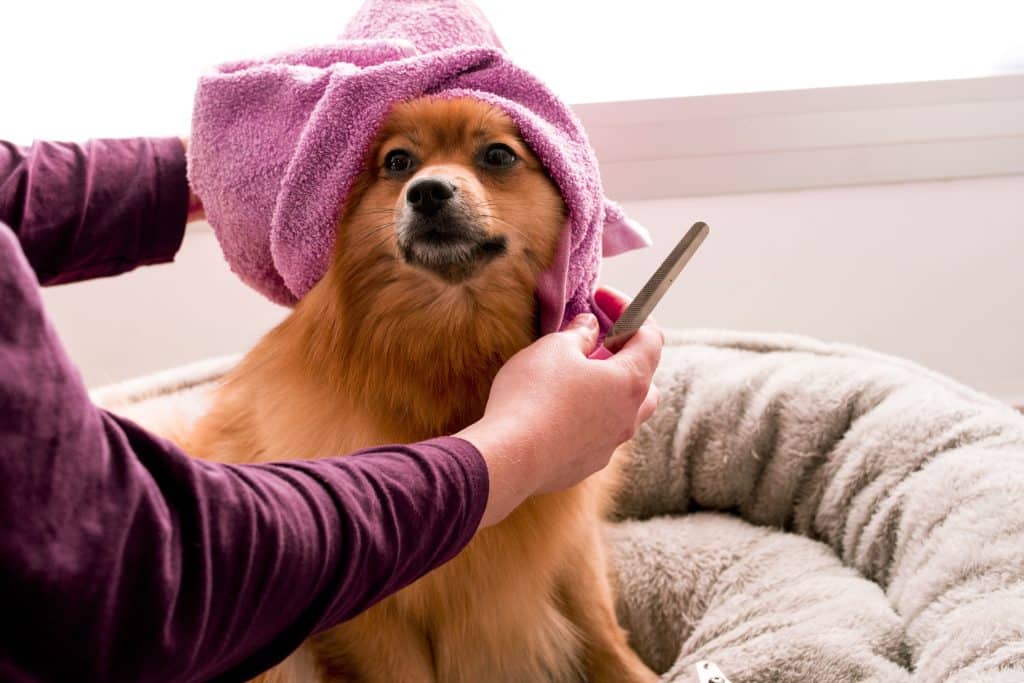
This image is property of images.unsplash.com.
Maintain a regular exercise routine
As your senior dog ages, it is important to continue providing regular exercise to keep them happy and healthy. While they may not have the same energy levels as when they were younger, maintaining a regular exercise routine can help to keep their joints limber and muscles toned. Take your senior dog for daily walks, but be mindful of their limitations and adjust the pace and distance to suit their abilities. Remember, exercise is not only physical but also mental stimulation, so make sure to incorporate interactive playtime into your routine as well.
Adjust the intensity and duration of exercise
While exercise is important for senior dogs, it is crucial to adjust the intensity and duration of their activities to match their age and physical condition. High-impact exercises like running or jumping may not be suitable for senior dogs with joint issues. Instead, opt for low-impact exercises such as swimming or walking on soft surfaces. It is also essential to allow your senior dog plenty of rest between exercise sessions to prevent overexertion and fatigue.
Provide mental stimulation through puzzle toys
Keeping your senior dog mentally stimulated is just as important as physical exercise. As dogs age, their cognitive abilities may decline, so providing mental stimulation can help keep their minds sharp. Puzzle toys are a great way to challenge your senior dog's problem-solving skills and keep them entertained. These toys often require your dog to figure out how to access treats or toys hidden inside, providing mental exercise and enrichment.
Consider low-impact exercises
In addition to regular exercise, incorporating low-impact exercises into your senior dog's routine can be beneficial. These exercises are designed to be gentle on your dog's joints while still providing them with physical activity. Hydrotherapy, which involves swimming in a controlled environment, can be particularly helpful for senior dogs as it allows for increased range of motion and works their muscles without putting pressure on their joints. Consult with your veterinarian about the most suitable low-impact exercises for your senior dog's specific needs.
Nutrition and Diet
Switch to a senior-specific diet
As your dog ages, their nutritional needs change. Switching to a senior-specific diet formulated for older dogs is essential to ensure they are getting the right nutrients in the right amounts. Senior dog food is typically lower in calories to prevent weight gain, higher in fiber to aid digestion, and contains ingredients that support joint health, such as glucosamine and chondroitin. Consult with your veterinarian to find the best senior dog food brand and formula for your furry friend.
Control portion sizes
Maintaining a healthy weight is crucial for senior dogs to prevent obesity and its associated health issues. As metabolism slows down with age, it is important to monitor and control your senior dog's portion sizes. Use a measuring cup or scale to ensure you are feeding them the appropriate amount of food each day. Avoid overfeeding treats, as they can contribute to weight gain. If you are unsure about the ideal portion sizes for your senior dog, consult with your veterinarian for personalized recommendations.

This image is property of images.unsplash.com.
Consider supplements for joint health
Joint health can become a concern for senior dogs, especially if they suffer from arthritis or other degenerative joint diseases. Consider adding joint-supporting supplements to your senior dog's diet to promote healthy joints and reduce discomfort. Glucosamine, chondroitin, and omega-3 fatty acids are commonly recommended supplements for joint health. However, it is important to consult with your veterinarian before starting any supplements, as they can interact with medications or have side effects.
Ensure access to fresh water
Proper hydration is crucial for the overall health and well-being of senior dogs. Ensure that your senior dog has constant access to fresh and clean water throughout the day. Older dogs may be more prone to dehydration, so consider placing multiple water bowls around your home to make it easily accessible for them. Additionally, monitor your dog's water intake and contact your veterinarian if you notice any significant changes, as it could be a sign of an underlying health issue.
Regular Veterinary Check-ups
Schedule more frequent vet visits
Regular veterinary check-ups are even more vital for senior dogs to ensure their health is closely monitored. As dogs age, they are more susceptible to certain health conditions, and early detection can lead to better treatment outcomes. Schedule more frequent vet visits, ideally every six months, for a comprehensive examination. During these visits, your veterinarian can assess your senior dog's overall health, administer necessary vaccinations, and discuss any concerns or changes you have noticed.
Discuss age-related health concerns
As your dog reaches their senior years, it is important to discuss age-related health concerns with your veterinarian. Common issues in senior dogs include arthritis, dental disease, cognitive decline, and organ issues. Talk to your vet about any changes in your dog's behavior, mobility, or appetite, as well as any concerns you have about their overall well-being. Your veterinarian can provide guidance on managing these age-related health concerns and recommend appropriate treatment options.
Screen for common senior dog illnesses
Senior dogs are more prone to certain illnesses and diseases, such as cancer, kidney disease, and heart conditions. Regular screenings and preventive care can help detect these issues early on, allowing for prompt treatment and management. Your veterinarian may recommend blood tests, urine analysis, X-rays, or ultrasounds to assess your senior dog's internal health. Follow your veterinarian's advice and make sure to keep up with any recommended screening tests to ensure the well-being of your furry companion.
Monitor dental health
Dental health is particularly important for senior dogs, as dental issues can lead to pain, infection, and other health problems. Regular dental check-ups and cleanings are crucial in maintaining good oral hygiene. Your veterinarian will examine your dog's teeth, gums, and mouth, and may recommend a dental cleaning if necessary. In between dental visits, monitor your senior dog's teeth and gums for signs of dental issues, such as bad breath, swollen gums, or difficulty eating. Incorporating dental chews or toys into their routine can also help promote dental health.
Mobility and Comfort
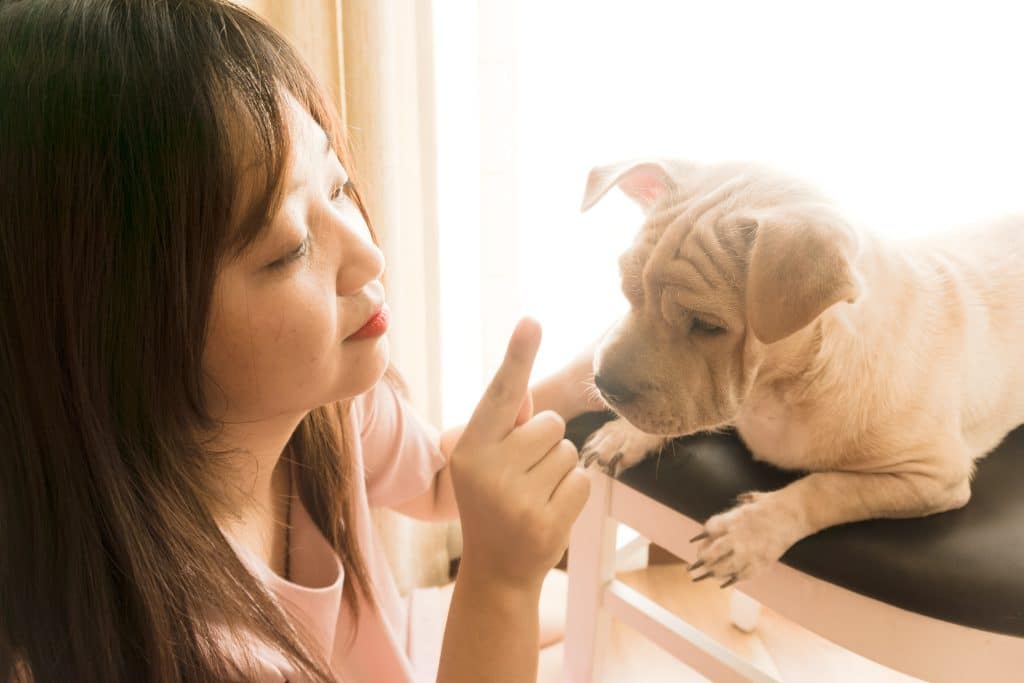
This image is property of images.unsplash.com.
Provide a comfortable sleeping area
As your dog ages, providing them with a comfortable and supportive sleeping area is essential. Senior dogs may experience joint pain or arthritis, so it is important to provide them with a bed that offers extra cushioning and support. Consider investing in an orthopedic bed designed specifically for senior dogs, as they provide additional comfort and relieve pressure on achy joints. Place the bed in a quiet and warm area of your home, away from drafts or excessive noise.
Use ramps or steps for easier access
Senior dogs may have difficulty climbing stairs or jumping onto furniture due to joint issues or reduced mobility. To make it easier for your senior dog to access their favorite spots, consider using ramps or steps. Ramps can be used to help your dog get in and out of the car or reach higher surfaces, while steps can provide a gradual ascent for easier navigation. By having these assistance tools in place, you can help your senior dog maintain their independence and reduce the risk of injury from jumping or falling.
Consider orthopedic bedding
In addition to providing a comfortable sleeping area, consider using orthopedic bedding to further support your senior dog's joints. Orthopedic bedding is designed with memory foam or similar materials that conform to your dog's body shape, relieving pressure points and providing maximum support. These specialized beds are particularly beneficial for senior dogs with arthritis or other joint issues. Choose a bed with a cover that is easy to clean, as senior dogs may be more prone to accidents or spills.
Use joint-supporting supplements
To alleviate joint discomfort and promote mobility, consider using joint-supporting supplements for your senior dog. Glucosamine, chondroitin, and MSM (methylsulfonylmethane) are popular supplements that can help support healthy joints and reduce inflammation. However, it is important to consult with your veterinarian before starting any new supplements, as they can interact with medications or have side effects. Your vet can recommend the appropriate dosage and formulation based on your dog's specific needs.
Maintaining Mental Health
Keep your senior dog mentally stimulated
Keeping your senior dog mentally stimulated is crucial for their overall well-being. Engage in activities that challenge their brains and provide mental enrichment. This can include interactive puzzle toys, treat-dispensing toys, or food puzzles that require problem-solving skills. Teaching them new tricks and commands can also provide mental stimulation while reinforcing your bond. Additionally, consider incorporating regular playdates or interactions with other dogs to provide social and mental stimulation.
Stick to a familiar routine
As dogs age, they often find comfort in routine. Stick to a familiar daily routine for your senior dog to provide them with a sense of stability and security. Feed them at the same time each day, take them for walks at consistent times, and establish a regular bedtime routine. Consistency in their daily schedule can help reduce anxiety, promote mental well-being, and make it easier for them to adapt to any necessary changes in their environment.
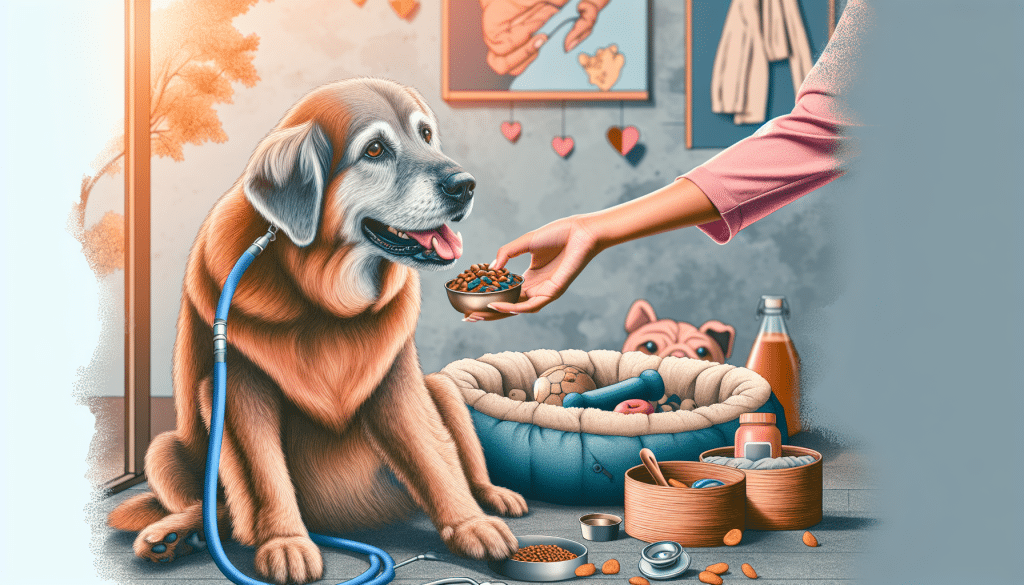
Combat cognitive decline with brain games
Senior dogs are more prone to cognitive decline, which can affect their memory, learning, and problem-solving abilities. Combat this decline by incorporating brain games and puzzles into their routine. Simple tasks such as hiding treats around the house for them to find or teaching them new commands can help keep their minds active and engaged. There are also specialized brain games and interactive toys available for dogs that can challenge their cognitive skills and provide mental stimulation.
Provide comfort and reassurance
As dogs age, they may experience anxiety or discomfort related to changes in their bodies or environment. Provide comfort and reassurance to your senior dog by creating a peaceful and secure environment. Ensure they have a quiet and comfortable space where they can retreat when they need some alone time. Offer gentle massages or physical touch to provide comfort and relaxation. Additionally, remain calm and patient when engaging with your senior dog, as they may require more time to process information or respond to commands.
Dental Care
Maintain a regular dental hygiene routine
Regular dental care is essential for the overall health and well-being of your senior dog. Establish a dental hygiene routine early on and maintain it throughout their life. Brushing your dog's teeth regularly with a dog-specific toothbrush and toothpaste can help prevent plaque buildup, tartar formation, and gum disease. Aim to brush their teeth at least two to three times per week, if not daily. If your senior dog is not accustomed to tooth brushing, start slow and gradually increase the frequency as they become more comfortable.
Schedule professional dental cleanings
In addition to regular brushing, scheduling professional dental cleanings is vital for your senior dog's dental health. Professional cleanings performed by a veterinarian can remove stubborn plaque and tartar that cannot be eliminated through brushing alone. These cleanings also allow for a thorough examination of your dog's oral health, including the gums, teeth, and tongue. Your veterinarian may recommend dental cleanings at least once a year or more frequently if your dog has existing dental issues.
Monitor for signs of dental issues
Senior dogs are more prone to dental issues such as gum disease, tooth decay, and oral infections. Regularly monitor your senior dog's dental health and be vigilant for any signs of dental issues. Bad breath, inflamed gums, loose or missing teeth, excessive drooling, and difficulty eating are all potential indicators of dental problems. If you notice any of these signs, consult with your veterinarian for a dental examination and appropriate treatment options.
Ensure access to dental chews/toys
Dental chews and toys can be valuable additions to your senior dog's dental care routine. Chewing on these specially designed items can help remove plaque and tartar, massage the gums, and promote good oral hygiene. Look for dental chews or toys that are appropriate for senior dogs, as they may be softer and gentler on their teeth. Be mindful of your senior dog's dental health when selecting toys and monitor them during their playtime to ensure the toys are safe and not causing any harm.
Temperature Regulation
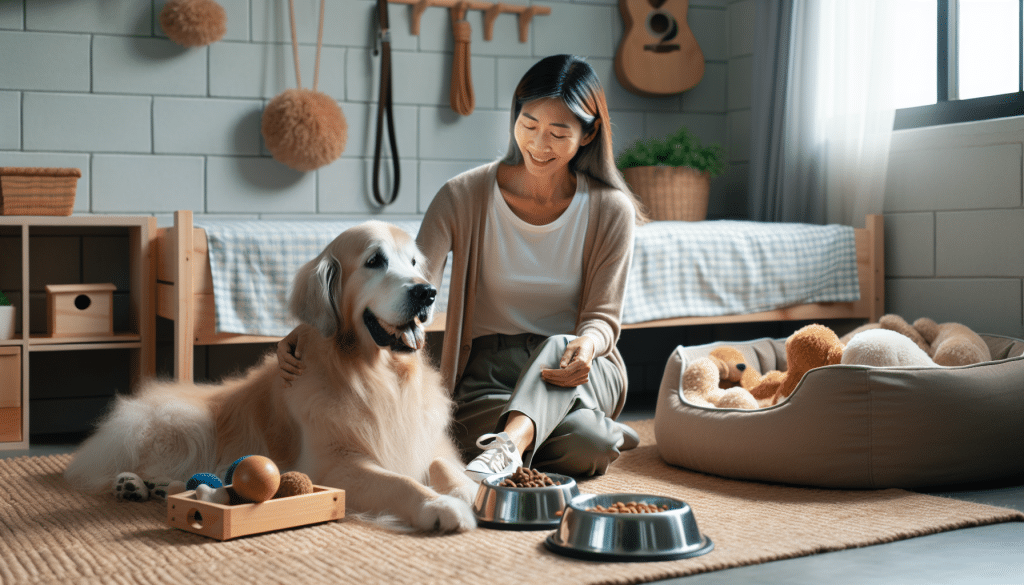
Protect your senior dog from extreme weather
Senior dogs are more sensitive to extreme temperatures, so it is important to protect them from harsh weather conditions. During hot weather, ensure your dog has access to shade and cool areas, and never leave them in a parked car, as temperatures can quickly become dangerous. In cold weather, provide your senior dog with appropriate warm clothing, especially if they have thin fur or short hair. Consider using booties to protect their paws from ice, snow, or hot pavement.
Provide a warm and cozy environment
Creating a warm and cozy environment for your senior dog is essential, especially during colder months. Provide them with a comfortable bed and blankets to keep them warm at night. Consider using heating pads or blankets specifically designed for pets, but always monitor your dog's behavior and ensure they can move away from the heat source if they become too warm. Keep their living areas draft-free and away from windows or doors where cold air can seep in.
Avoid overheating during exercise
While exercise is important for senior dogs, it is crucial to avoid overheating, particularly in warmer weather. Adjust the timing and intensity of exercise to avoid the peak heat of the day, opting for early morning or late evening walks instead. Always bring water for your dog during exercise and take frequent breaks to rest and cool down. Watch for signs of overheating, such as excessive panting, lethargy, or disorientation, and cease exercise immediately if these signs occur.
Consider using cooling mats in hot weather
During hot weather, you can help your senior dog stay cool by using cooling mats or pads. These mats are specifically designed to absorb and dissipate your dog's body heat, providing a comfortable and cool surface for them to rest on. Place the cooling mats in your senior dog's favorite resting areas, such as their bed or a shady spot in the house. Remember to always monitor your dog while using cooling mats and remove them if there are any signs of discomfort or irritation.
Senior-Specific Training
Use positive reinforcement techniques
Training older dogs requires patience, consistency, and positive reinforcement. Use gentle and reward-based training techniques to teach your senior dog new behaviors or reinforce existing ones. Reward them with treats, praise, or petting when they perform the desired behavior correctly. Positive reinforcement helps motivate and build a bond with your senior dog while avoiding negative associations or fear-based training methods. Celebrate even small successes and be understanding of any physical limitations or changes in their abilities.
Focus on building confidence
Senior dogs may experience a decrease in confidence due to age-related changes or health issues. Focus on building their confidence through training exercises that are suitable for their age and abilities. Break down complex tasks into smaller steps, allowing them to achieve success without becoming overwhelmed. Offer plenty of positive reinforcement and support to boost their confidence. As each successful training session builds their self-assurance, they will become more willing to try new things and face challenges with determination.
Adapt training methods to suit their abilities
When training senior dogs, it is essential to adapt training methods to suit their physical abilities and limitations. Modify exercises and commands to accommodate any mobility or joint issues they may have. Use visual cues or hand signals if verbal commands become difficult for them to understand. Be patient and allow for extra time during training sessions to account for any physical limitations or cognitive decline. Remember that the goal is to provide mental stimulation and strengthen the bond between you and your senior dog.
Address age-related behavioral changes
As dogs age, they may experience changes in behavior due to physical discomfort, cognitive decline, or sensory changes. Monitor and address these age-related behavioral changes with understanding and patience. Seek guidance from a professional dog trainer or behaviorist if needed. They can provide tailored advice and techniques to address specific behavioral issues, such as increased anxiety, aggression, or confusion. Maintaining a calm and consistent environment, along with positive reinforcement, can help manage and improve any age-related behavioral changes.
Socialization and Interaction
Maintain social activities and interactions
Socialization is important for dogs at all stages of life, including seniors. Maintain social activities and interactions to keep your senior dog engaged and mentally stimulated. Continue to expose them to other dogs, people, and new environments to prevent social isolation and boredom. Keep playdates with friendly and compatible dogs or consider enrolling in group training classes specifically designed for senior dogs. Regular socialization can help keep your senior dog well-adjusted, reduce anxiety, and promote a sense of belonging.
Arrange playdates with other senior dogs
Playdates with other senior dogs can be a wonderful way to provide social interaction and exercise tailored to their age and energy level. Seek out opportunities for your dog to interact with other senior dogs in a controlled and supervised environment. This can be through organized meet-ups, doggy daycares that offer senior dog programs, or through friends with aging canine companions. When arranging playdates, ensure that the dogs are well-matched in terms of temperament and play style for a positive and enjoyable experience.
Provide opportunities for gentle exercise with other dogs
In addition to socializing with other dogs, providing opportunities for gentle exercise with their furry friends can be beneficial for senior dogs. Organize group walks or outings with other dog owners, taking care to tailor the pace and duration to match the abilities of all the dogs involved. This not only provides mental stimulation and physical exercise but also allows for healthy social interaction and the opportunity to explore new environments together.
Monitor their interactions to prevent aggression
While social interactions are important for senior dogs, it is also crucial to monitor their interactions to prevent any signs of aggression or discomfort. Aging dogs may have reduced tolerance for certain behaviors or may be experiencing pain or sensory changes that affect their reactions. Always supervise play sessions and be familiar with your dog's body language and cues. If you notice any signs of tension, stress, or aggressive behavior, intervene appropriately and separate the dogs if necessary.
Monitoring Pain and Discomfort
Watch for signs of pain or discomfort
As your dog ages, they may experience pain or discomfort due to age-related conditions such as arthritis, joint issues, or organ problems. Watch for signs of pain or discomfort, as your senior dog may not be able to communicate their discomfort as effectively as they once could. Common signs of pain in dogs include decreased activity levels, limping, difficulty climbing stairs or getting up, changes in appetite, increased irritability, or vocalizations when being touched. If you suspect your senior dog is in pain, consult with your veterinarian for a proper evaluation and pain management plan.
Discuss pain management options with your vet
If your senior dog is experiencing pain or discomfort, discuss pain management options with your veterinarian. There are various medications and therapies available to help manage pain in senior dogs. Nonsteroidal anti-inflammatory drugs (NSAIDs), acupuncture, physical therapy, and laser therapy are just a few examples of potential treatment options. Work with your veterinarian to create a tailored plan that addresses your dog's specific needs and helps improve their quality of life.
Provide support for achy joints and muscles
Senior dogs with joint issues or arthritis may benefit from additional support to alleviate discomfort and improve mobility. There are various supportive products available, such as joint supplements, orthopedic braces, and mobility aids like harnesses or slings. These products can provide stability and relief to achy joints and muscles, making it easier for your senior dog to move around. Consult with your veterinarian to determine which products may be suitable for your dog's specific condition.
Consider alternative therapies such as acupuncture or massage
Alternative therapies can often complement traditional veterinary treatments in managing pain and discomfort in senior dogs. Acupuncture, massage therapy, or hydrotherapy (water therapy) can provide pain relief, improve mobility, and promote relaxation. These therapies work by targeting specific areas of the body to stimulate blood flow, release endorphins, and reduce muscle tension. Consult with a certified professional who specializes in these alternative therapies to determine if they may be beneficial for your senior dog and to ensure proper treatment and care.
In conclusion, caring for your senior dog requires attentive and thoughtful consideration of their specific needs. By maintaining a regular exercise routine, providing proper nutrition, ensuring regular veterinary check-ups, focusing on their mobility and comfort, maintaining their mental health, prioritizing dental care, regulating temperature, utilizing senior-specific training techniques, emphasizing socialization and interaction, and monitoring for pain and discomfort, you can help maintain your dog's quality of life as they enter their golden years. Remember to always consult with your veterinarian for personalized advice and recommendations to meet your senior dog's unique needs. With your love and dedicated care, your senior dog can continue to lead a happy and fulfilling life.

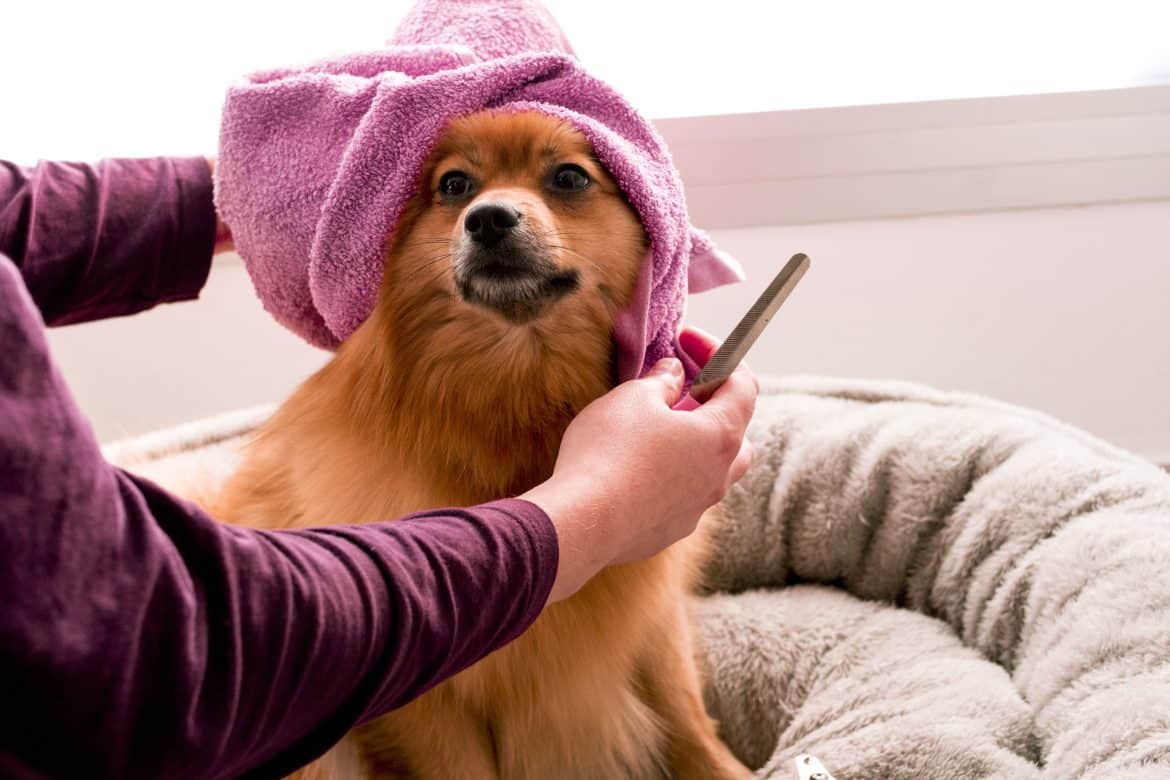

4 comments
[…] from securing your backyard, it is also essential to provide your dog with a designated area within your home. This can be a specific room or a corner of a room that is […]
[…] arthritis and diabetes to allergies and kidney disease. It is essential to be aware of the various chronic conditions dogs may face to provide them with the best care and […]
[…] and ensure healthy teeth and gums. In this article, we will explore the importance of dental care for dogs and discuss simple yet effective ways to keep your four-legged friend’s teeth […]
[…] having these essential dog care products, you’ll be well-equipped to provide the best care and ensure the well-being of your […]
Comments are closed.